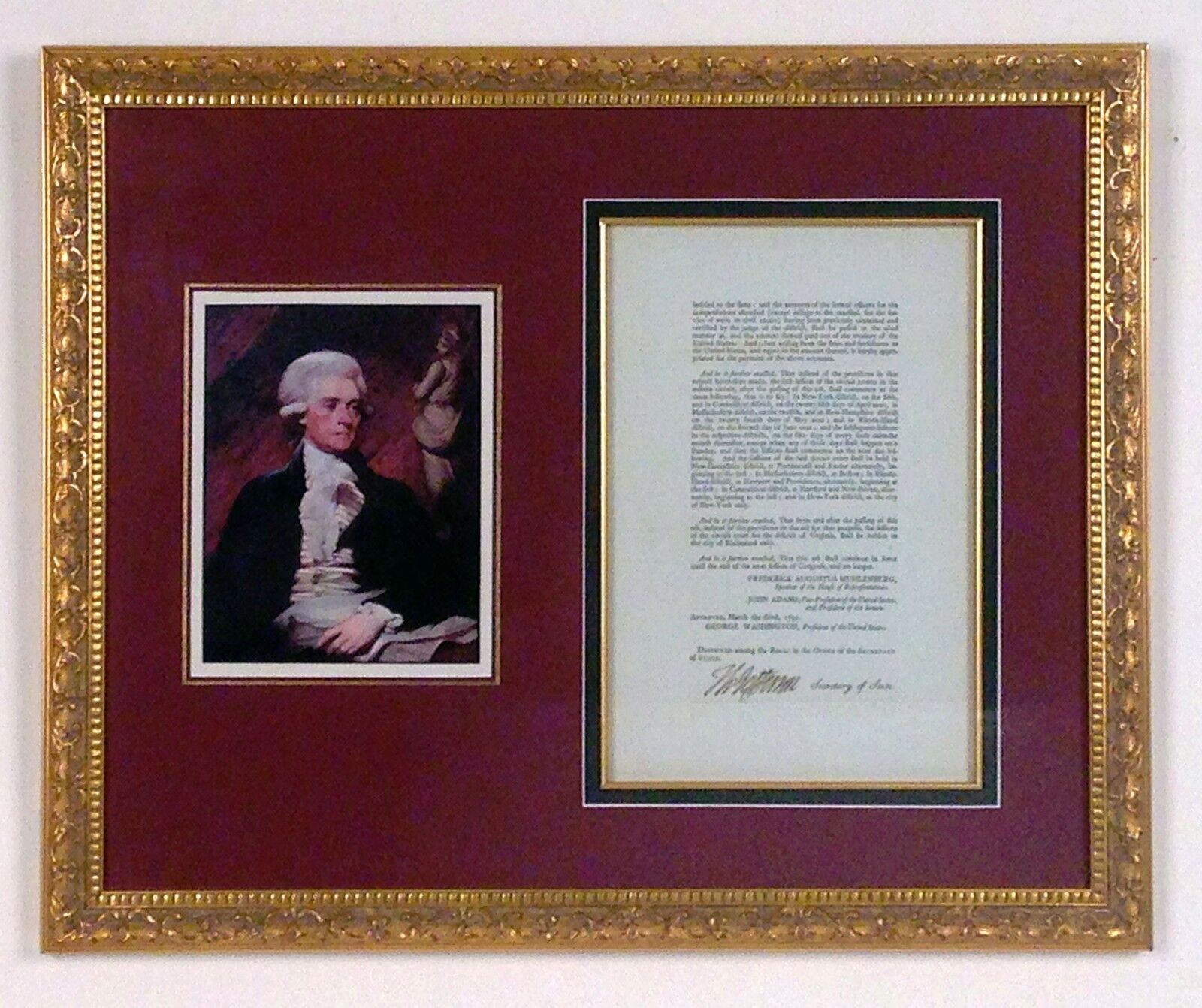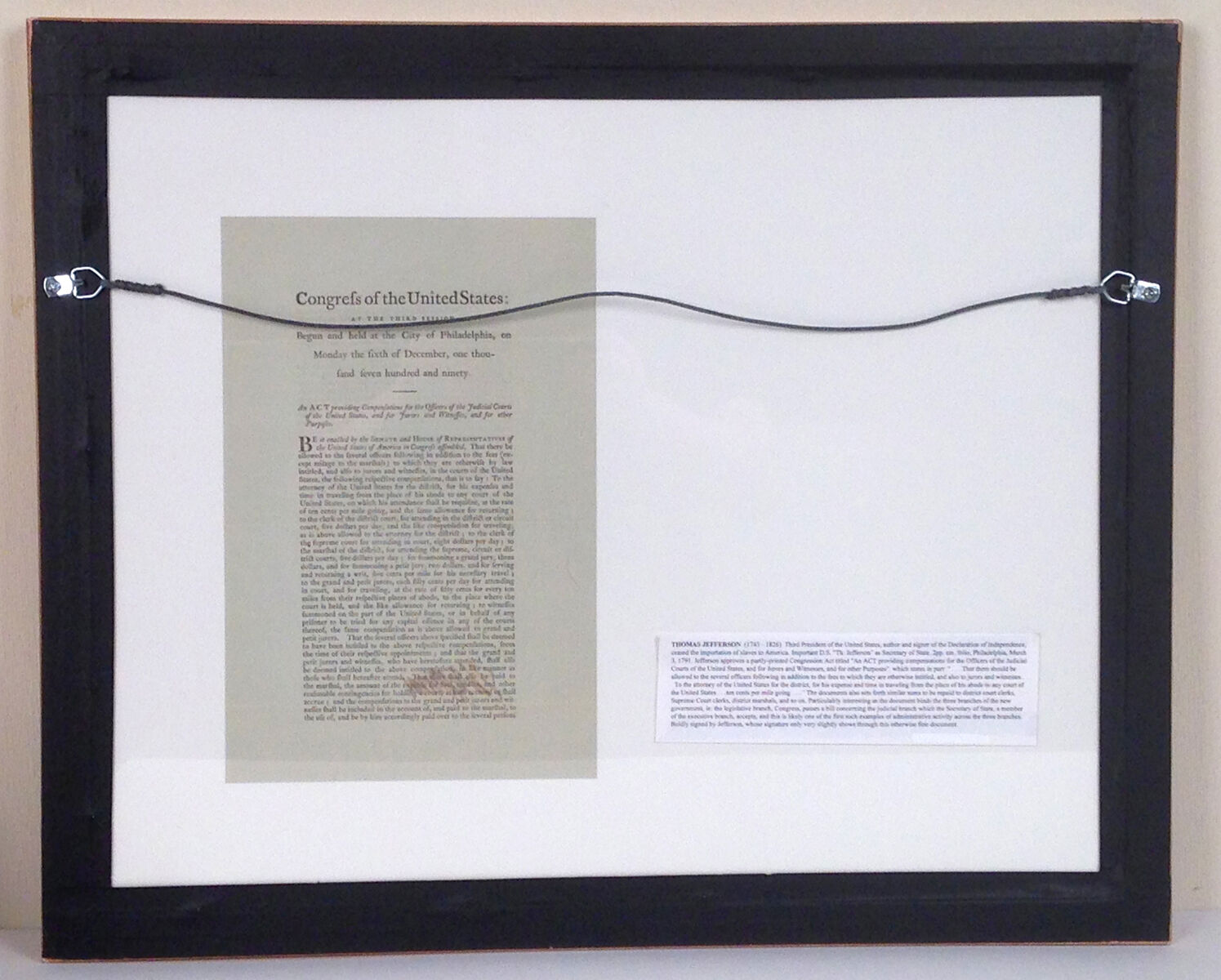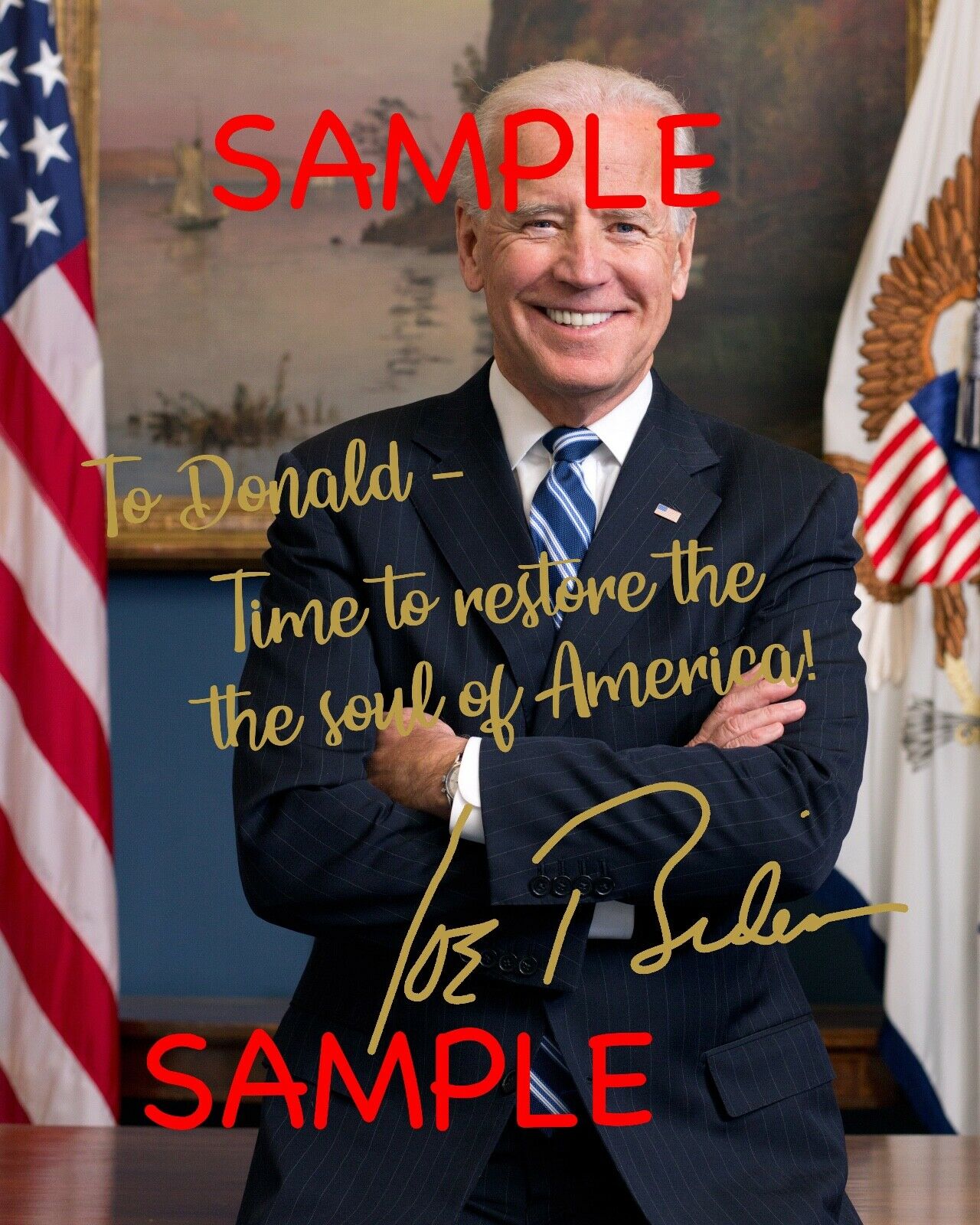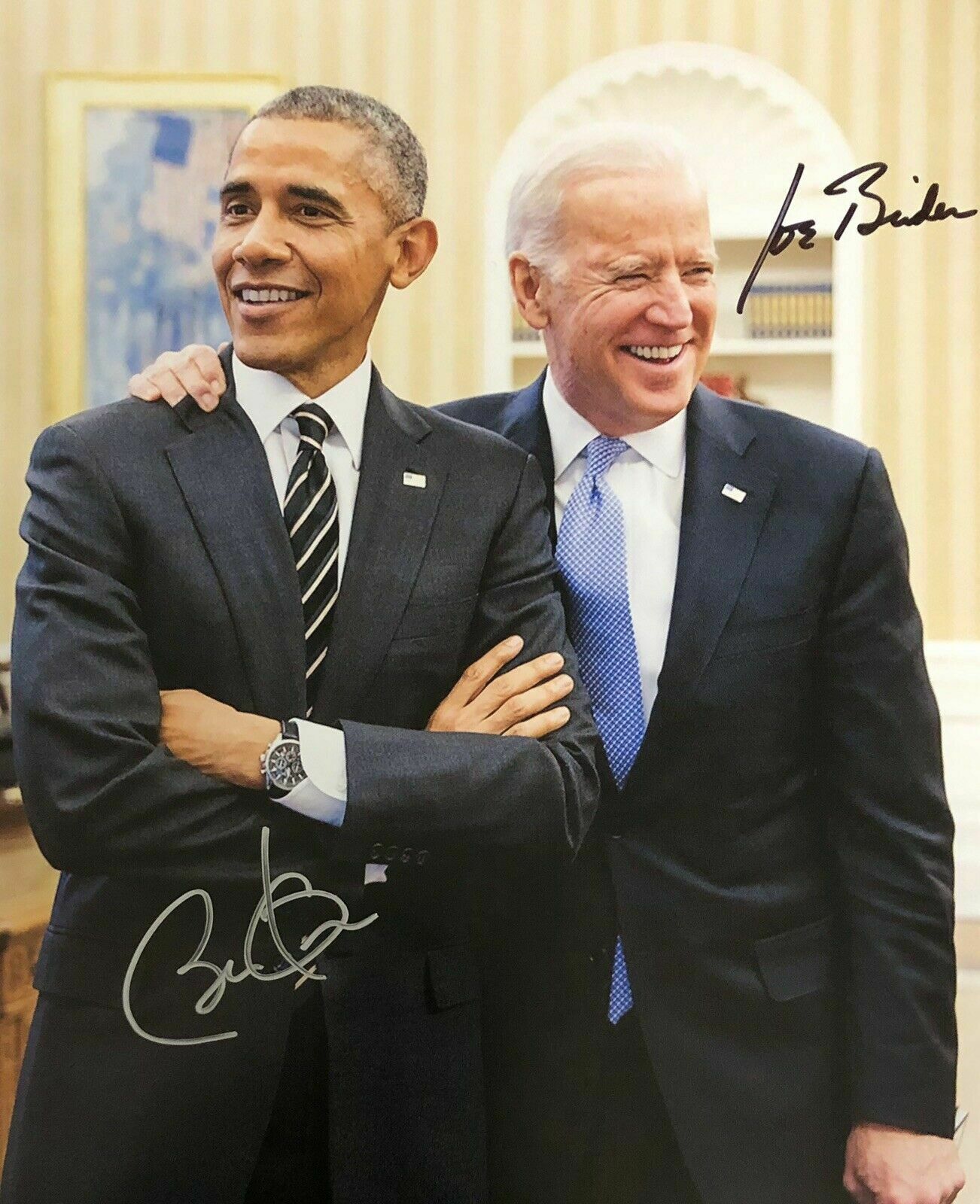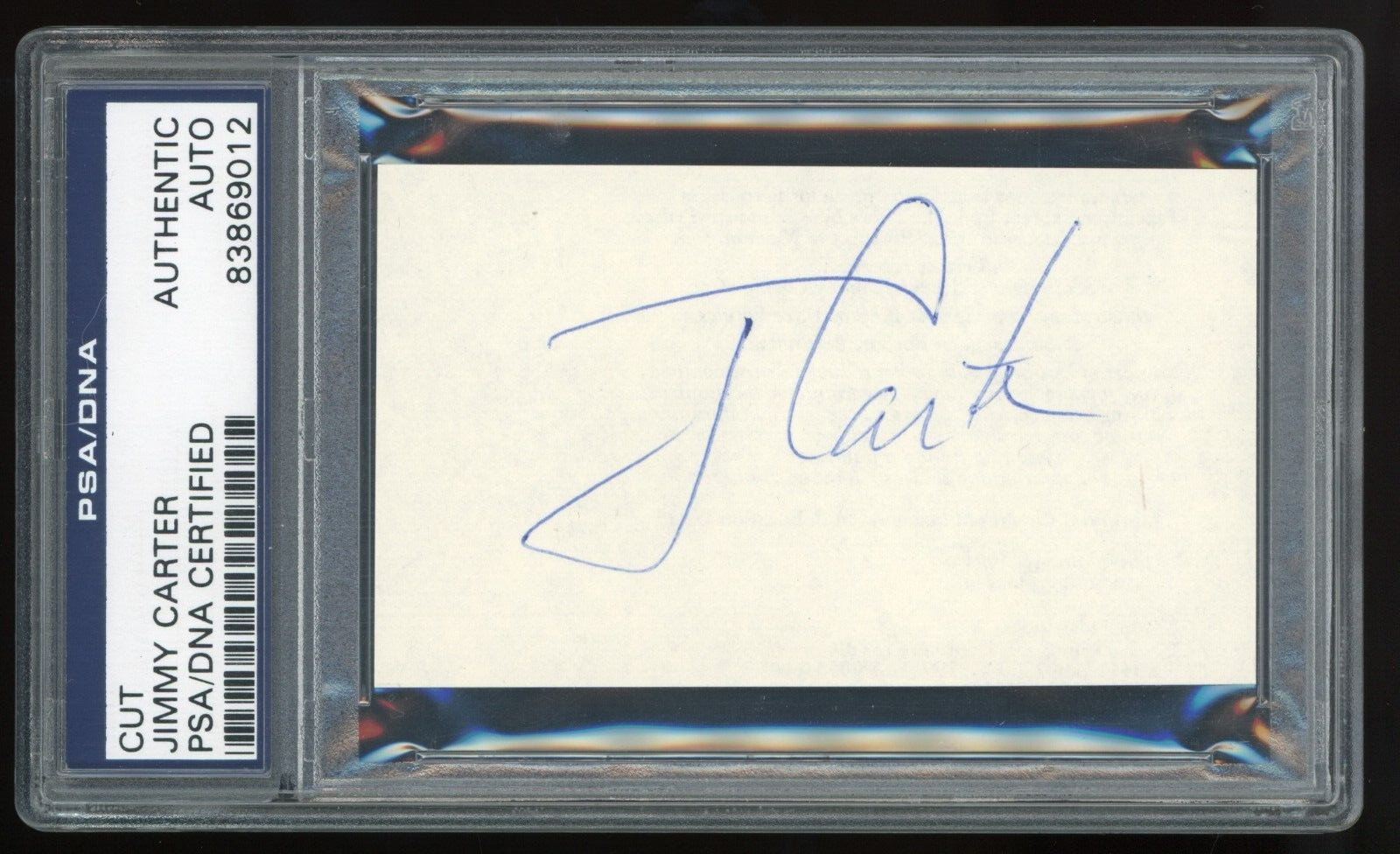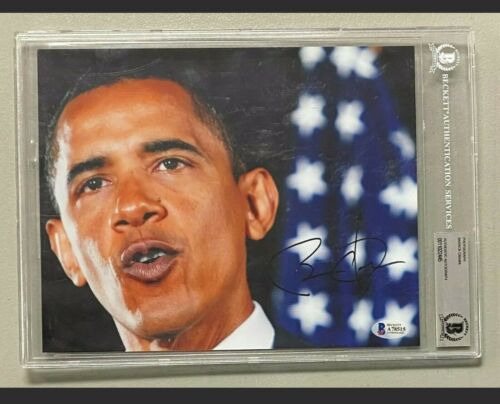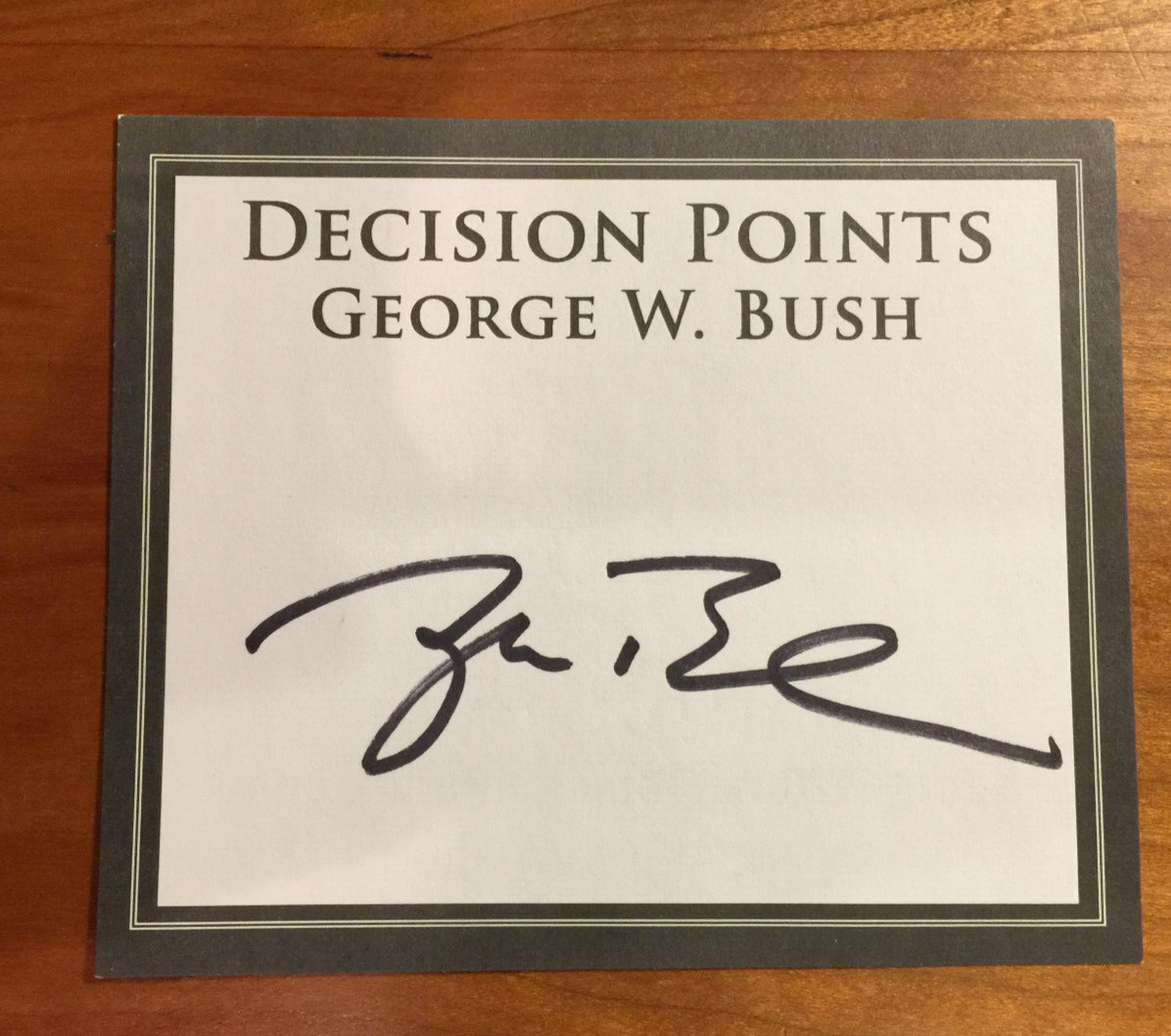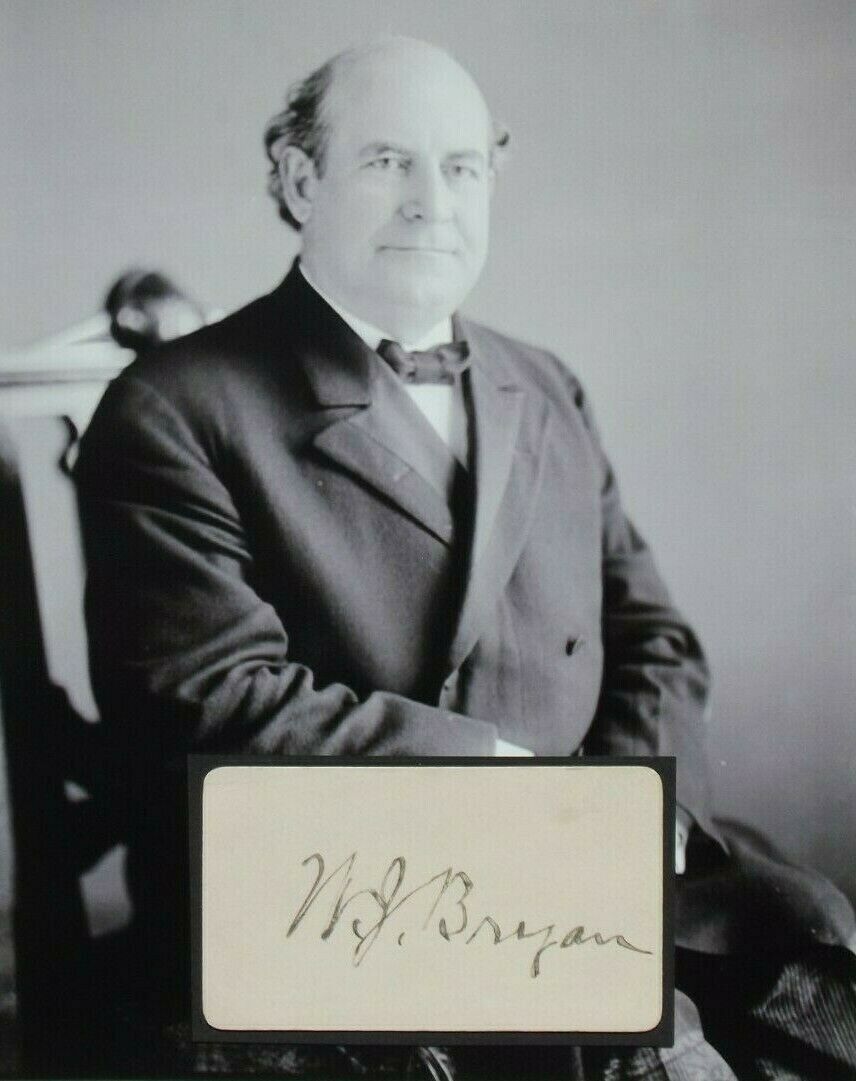-40%
Thomas Jefferson 1791 Signed Act of Congress for Compensating Court Officers
$ 8712
- Description
- Size Guide
Description
Thomas Jefferson Signed Act of Congress for Compensating Court Officers, Jurors, and WitnessesUnder the new federal Constitution, the First Congress had the momentous job of creating the laws to govern the various branches of the new government, whether setting up the framework for executive departments such as Treasury and State, establishing its own rules and schedule, or, in this case, creating a federal court system. In its second session (January 4, 1790 through August 12, 1790) Congress passed the Crimes Act, which defined a plethora of federal crimes, punishments, and court procedures. Here in the third session, the Congress provides a schedule of compensation for officers and jurors, as well as a process for scheduling and meeting places for the various federal district courts around the new nation.
FIRST CONGRESS. [THOMAS JEFFERSON].
Printed Document Signed as Secretary of State.
An Act providing compensations for the officers of the Judicial Courts of the United States, and for Jurors and Witnesses, and for other purposes.
New York, N.Y., March 3, 1791. Signed in type by George Washington as President, Frederick Augustus Muhlenberg as Speaker of the House of Representatives, and John Adams as Vice President, and president of the Senate. 2 pp., 9 x 15 in.
Inventory #26175.99
This act from the early days of the federal legal system under the new Constitution shows Congress deciding how to reimburse the participants of the courts. The U.S. Attorney is granted traveling expenses of
“ten cents per mile going, and the same allowance for returning.”
The clerk of the District Court shall receive a salary of five dollars per day; the clerk of the Supreme Court gets eight dollars a day. Jurors are to receive 50 cents a day, plus 50 cents traveling expenses for every ten miles. Fees for marshals, process servers, even witnesses are specified.
“There shall also be paid to the marshal, the amount of the expense for fuel, candles and other reasonable contingencies for holding a court.”
The Act covers only the federal District Courts for New Hampshire, Massachusetts, Rhode Island, Connecticut, New York, and Virginia and specifies which cities shall house the court: Portsmouth and Exeter in New Hampshire; Boston, Newport and Providence, Rhode Island, Hartford and New Haven, Connecticut, New York, and Richmond, Virginia.
Excerpts:
“the several officers following...are otherwise by law intitled, and also to jurors and witnesses...the following respective compensations:
to the marshal of the district, for attending the supreme, circuit or district courts, five dollars per day; for summoning a grand jury, three dollars, and for summoning a petit jury, two dollars, and for serving and returning a writ, five cents per mile for his necessary travel...
there shall also be paid to the marshal, the amount of the expense for fuel, candles, and other reasonable contingencies for holding a court...
Sec. 2 ...In New York district, on the fifth, and in Connecticut district, on the twenty-fifth days of April next; in Massachusetts district, on the twelfth, and in New Hampshire district on the twenty-fourth days of May next; and in Rhode Island district, on the seventh day of June next; and the subsequent sessions in the respective districts, on the like days of every sixth calendar month thereafter, except when any of those days shall happen on a Sunday, and then the sessions shall commence on the next day following...”
Legislative measures signed by Jefferson as Secretary of State
Following a law passed on September 15, 1789, Thomas Jefferson, as Secretary of State, signed two copies of each law, order, vote, or resolution of Congress for distribution to the executive of every state. At the time this resolution was passed, Vermont was a single day from statehood (March 4, 1791), so it is very likely that just 28 copies were signed by Jefferson to be sent to the states.
SETH KALLER, INC.
Historic Documents and Legacy Collections
For over 20 years, Seth Kaller has been one of the country’s largest buyers of important historic documents and artifacts. More than 10,000 rare manuscripts, documents, maps, and books handled by Kaller are now in institutional and private collections including working drafts of the United States Constitution, Lincoln-signed copies of the 13th Amendment and Emancipation Proclamation, and rare prints and broadsides of the Declaration of Independence.
Kaller is a member of the Antiquarian Booksellers’ Association of America (ABAA), the Professional Autograph Dealers Association (PADA), the American Antiquarian Society, the Manuscript Society, the New-York Historical Society’s Chairman’s Council, and the Papers of Abraham Lincoln Advisory Board.
Authenticity Guaranteed
Everything we sell comes with our absolute guarantee that it is original and authentic. If this is ever proven not to be authentic it may be returned for a full refund.
History You Can Own
Whether you’re interested in the Founding Fathers, Documents of Freedom, Battles and Leaders, the Civil War, African-Americana, World History, Science, or a particular hero or villain, we can help you explore opportunities to take ownership of history.
Build Your Own Collection
We can coordinate every aspect of the process for you, from searching for individual items to building entire world-class collections for your home, business, foundation, or favorite museum. We can handle the pre-acquisition research, physical inspection and purchasing, auction representation, authentication, inventory, accounting reports, framing, and display.
Help Your Favorite Institution
Build a legacy by preserving history for generations to come. Through donations and loans to your favorite museum, library, or university, you ensure the survival of these important documents and act as a steward for personalities and ideas that shaped the world. We handle all the arrangements including insurance, transit, and proper acknowledgement for you. Donating can also bring substantial tax benefits. We have considerable experience working with tax attorneys and accountants to help maximize your benefit or minimize your cost as you promote your passion for history.
